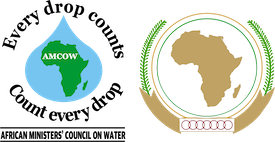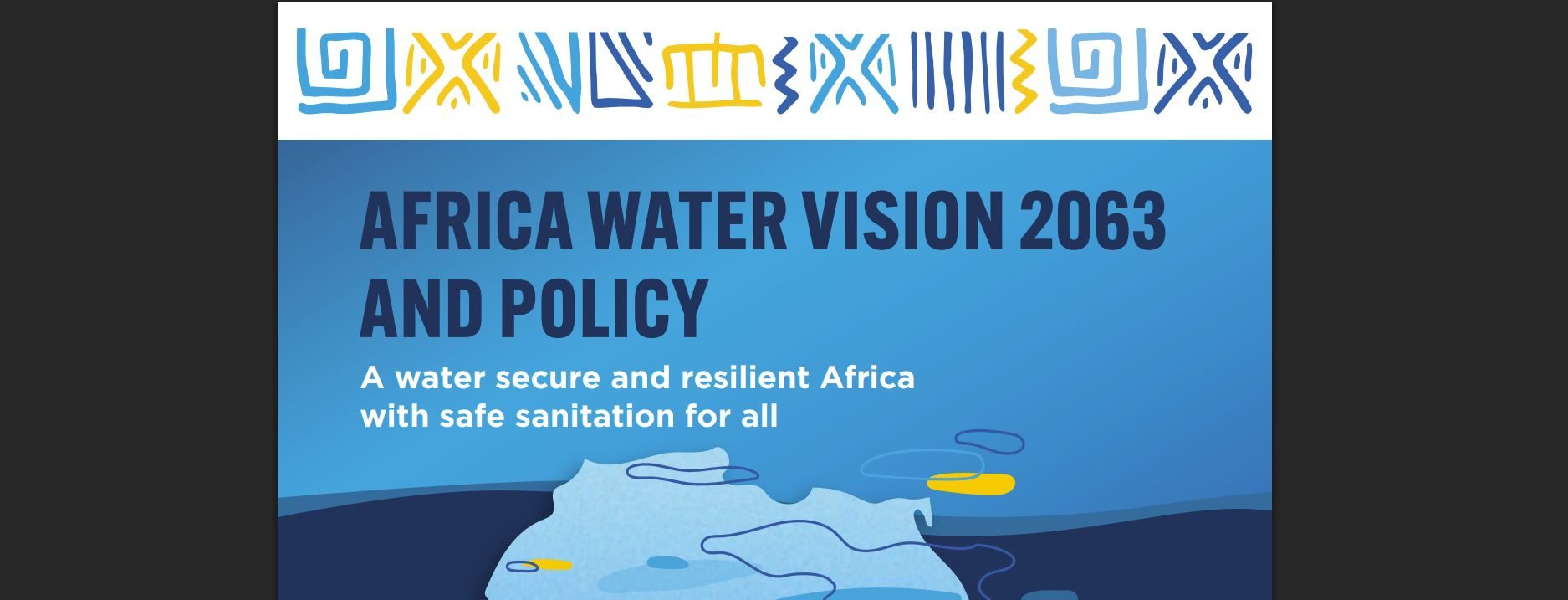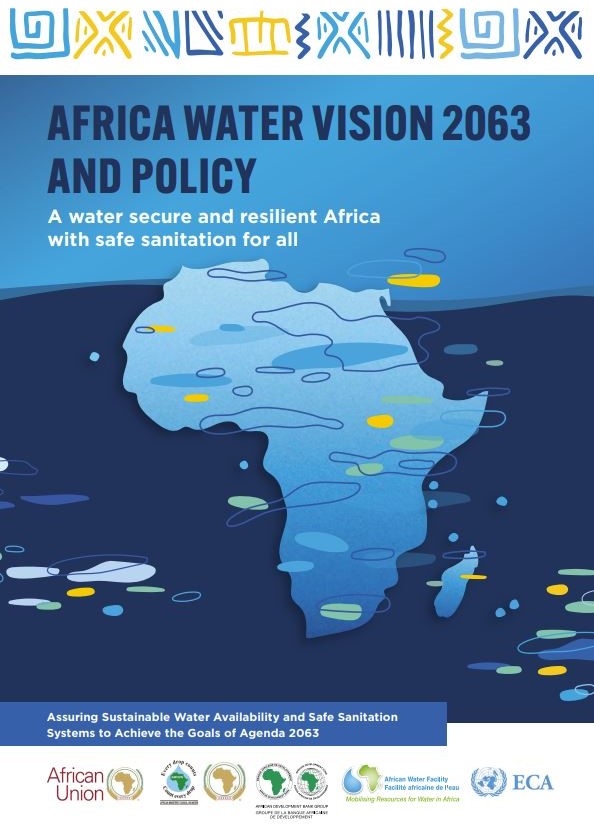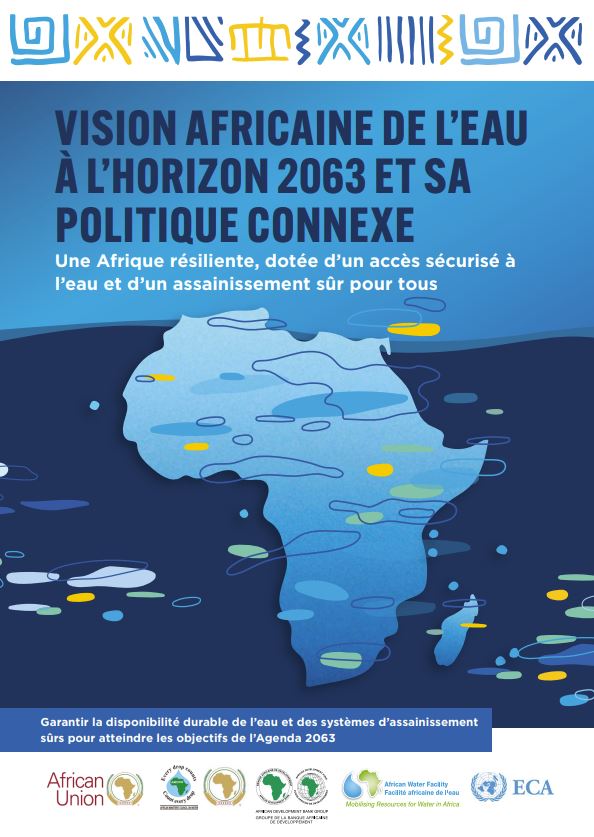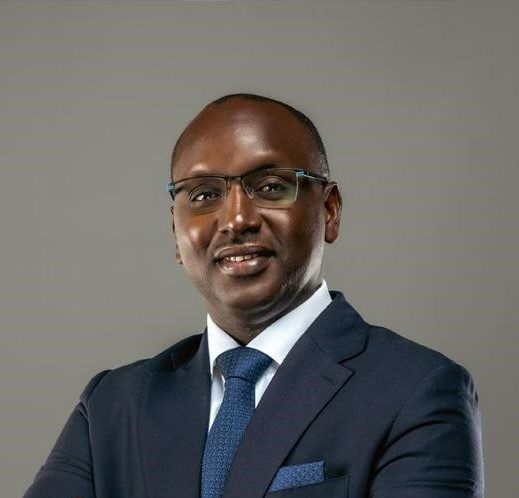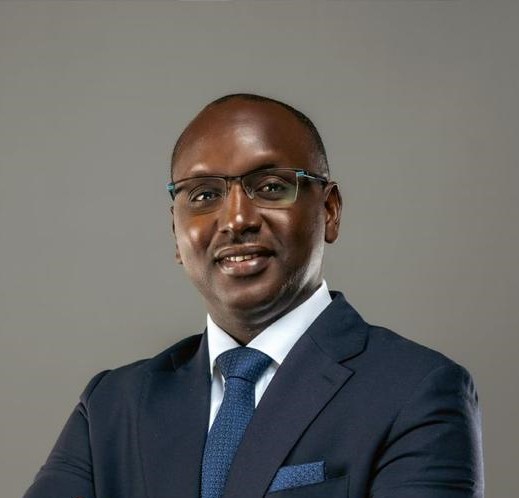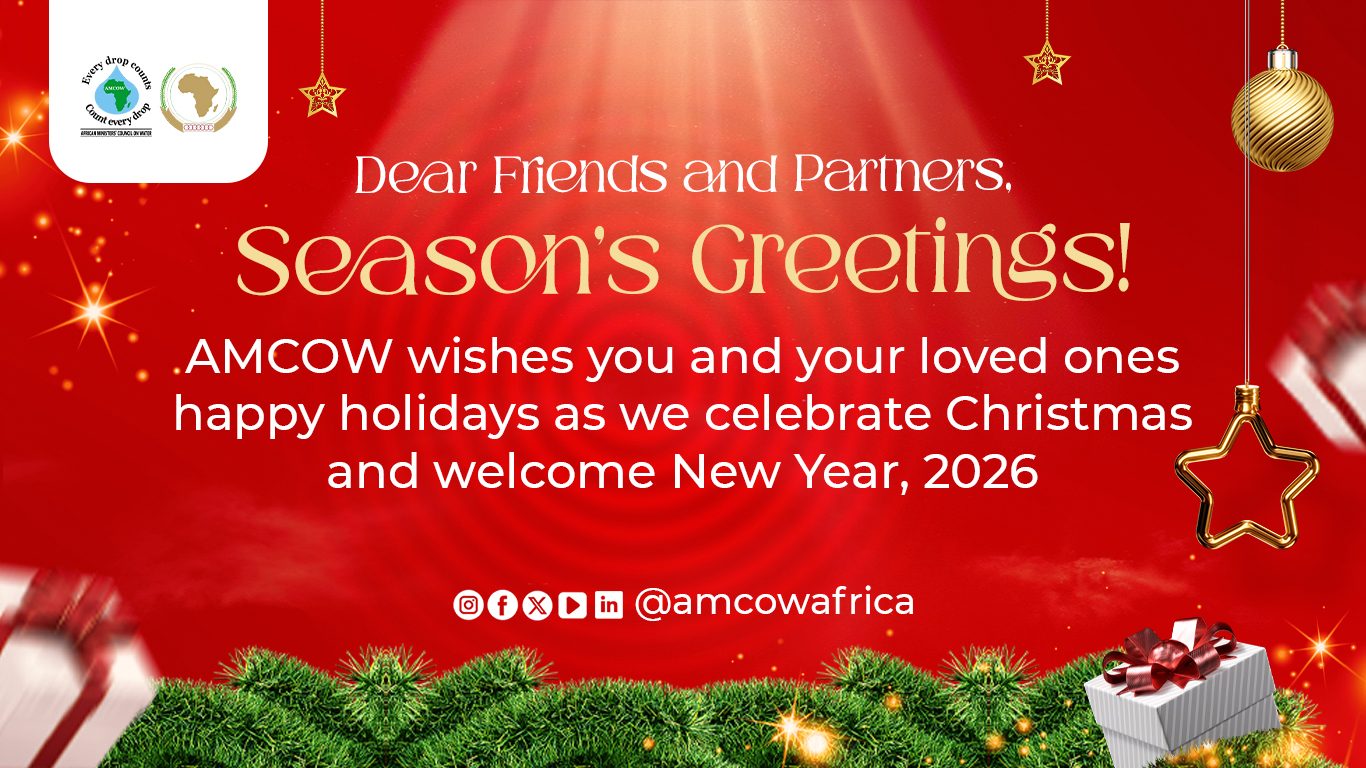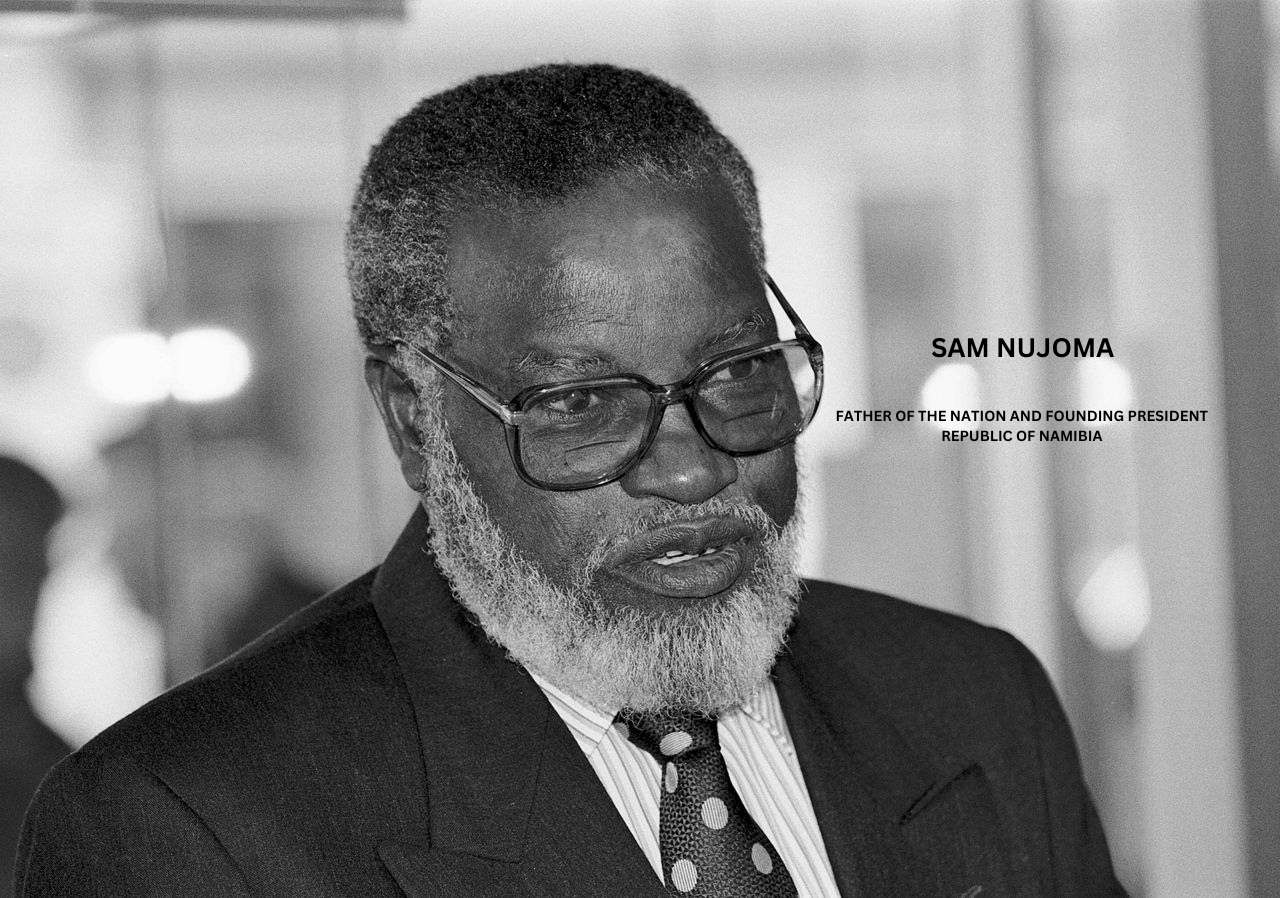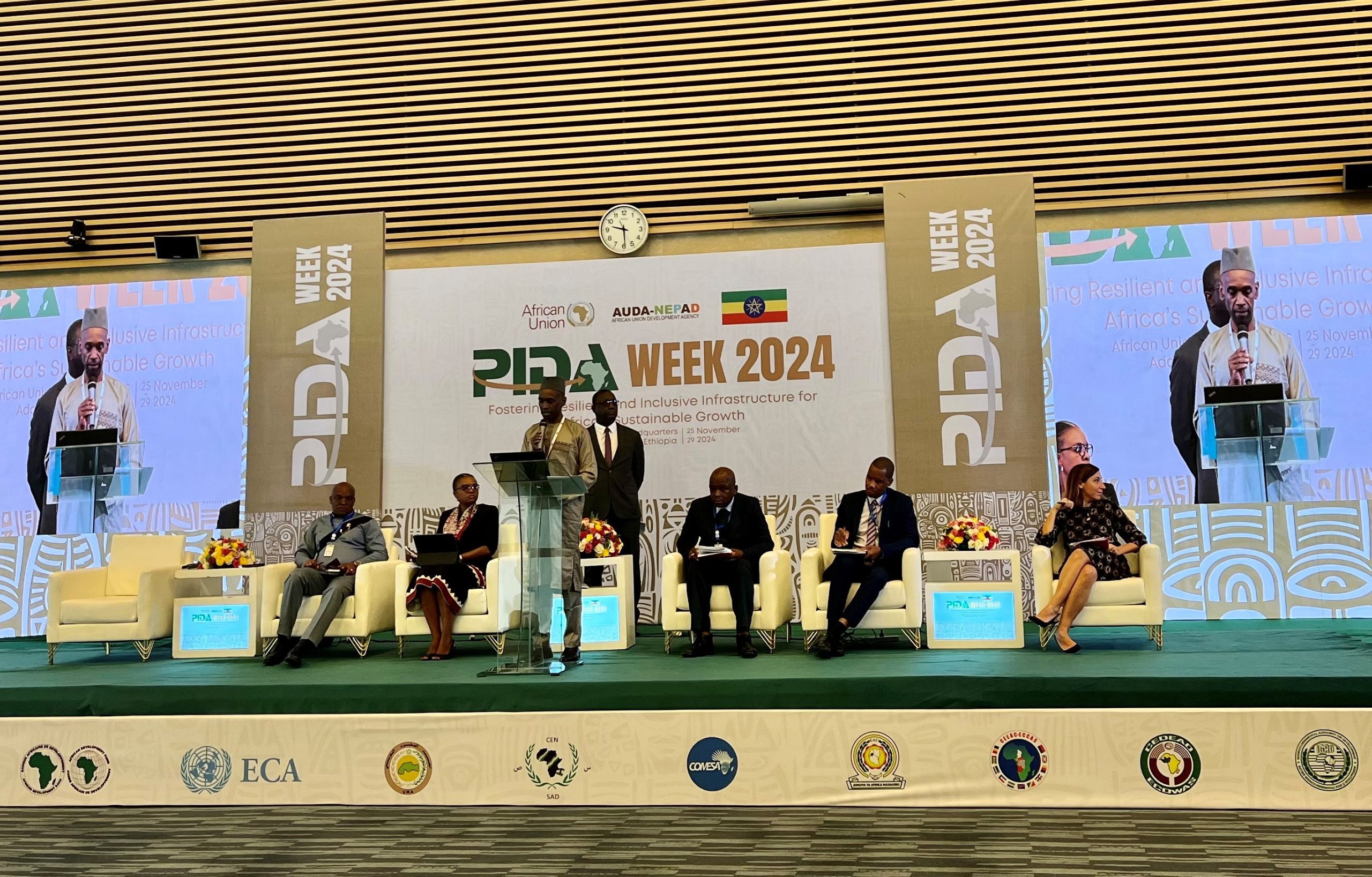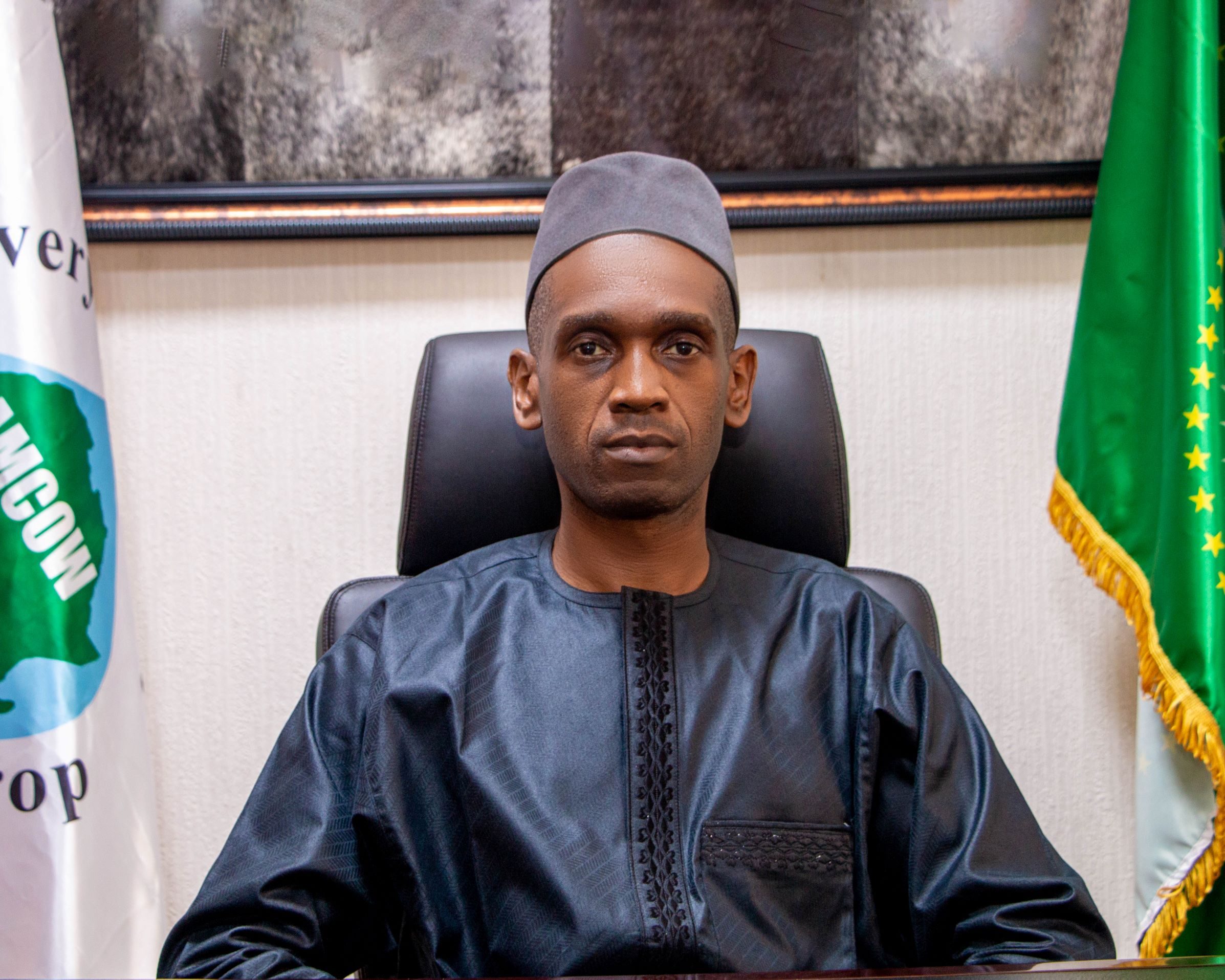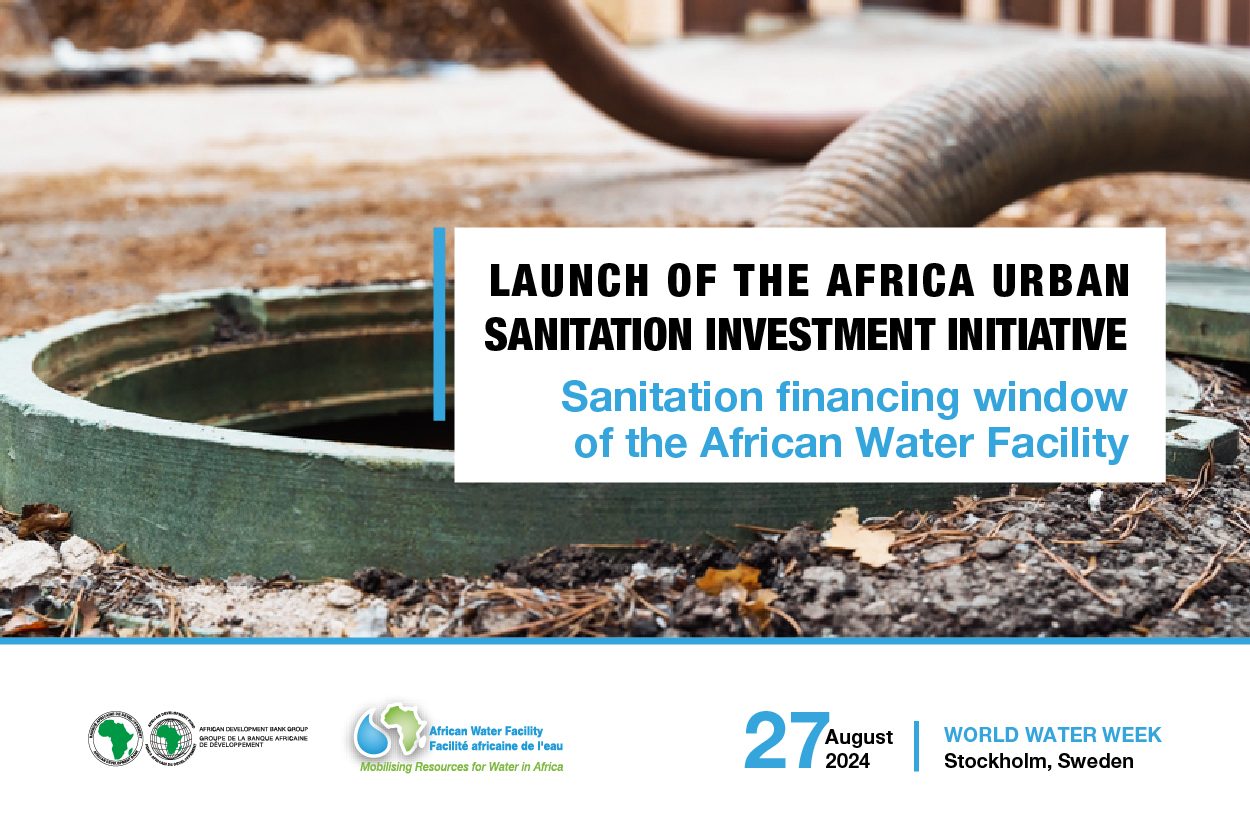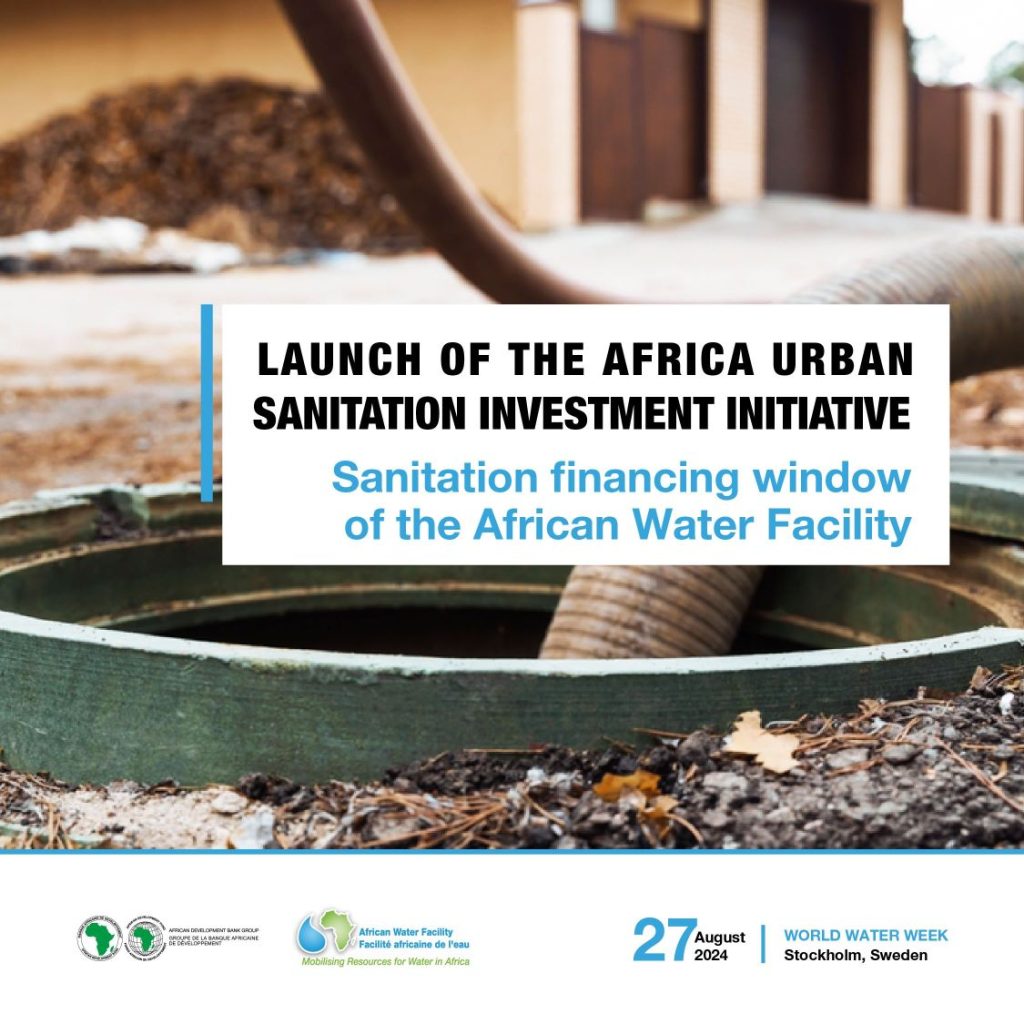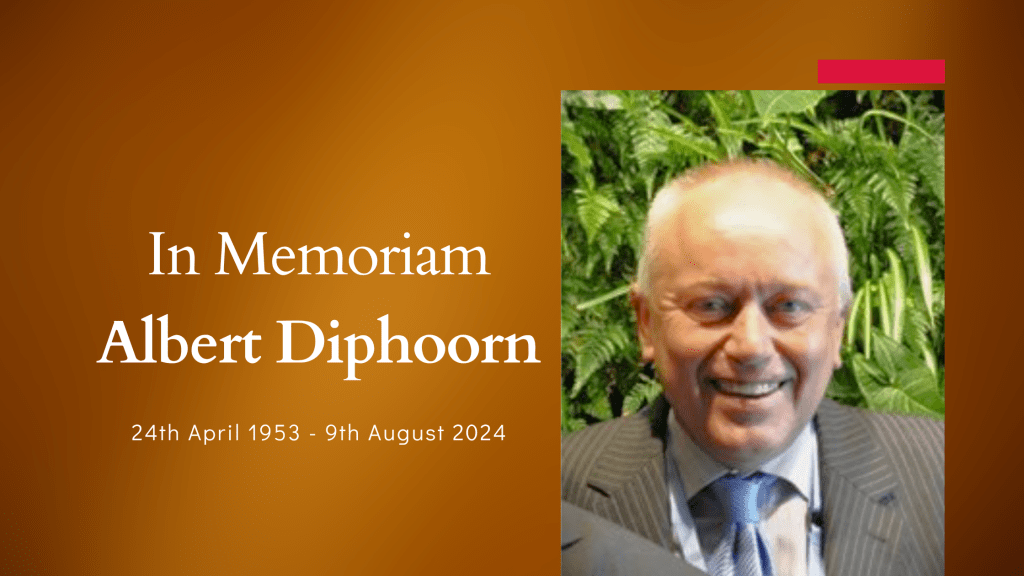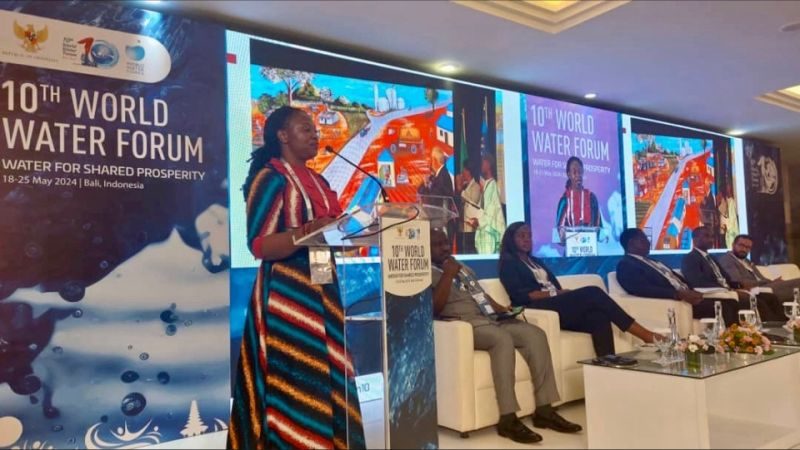Dear Esteemed Friends and Partners,
As we come to an end of 2025, allow us to wish you and loved ones happy holidays. This is also a perfect moment to look back at the final milestone year for the Africa Water 2025.
For us, the adoption of the Africa Water Vision 2063 and Policy, at the 14th General Assembly of the Governing Council of AMCOW – hosted by the Republic of Senegal, is the main highlight for 2025. The Vision and Policy – of a water secure and resilient Africa with safe sanitation for all – is not merely aspirational. It is a blueprint for action within the context of assuring water security in pursuit of the goals of AU’s Agenda 2063.
The Africa Water Vision 2063 and Policy seeks to deliver on a set of eight vision statements, namely;
- Universal access to safely managed water, sanitation and hygiene services
- Sustainable water availability for transformed economies and growing, prosperous populations facing greater climate uncertainty
- A thriving blue economy sustainably leverages Africa’s marine resources to drive prosperity, climate resilience, ecosystem protection and well-being
- Water governance systems, institutions and transformative leadership grounded in international water law and the principles of subsidiarity, accountability and transparency
- Water basins recognise as shared natural assets for enhancing regional integration, peace, social inclusion and political stability
- People, economies, and ecosystems are resilient and adequately protected from risks of natural and man-made water-related disasters
- Human capital development, technological empowerment and adaptive learning meet the requirements for effective management of Africa’s natural resources base
- Investment into legitimised and integrated water information systems supporting science-based decision making for climate resilience and raising the profile of water management and sanitation in national systems for economic planning, investment and financial allocation
The process of formulating the Post-2025 Africa Water Vision and Policy is traced back to the 2022 WASSMO Report when an eight-step roadmap was outlined and adopted.
In February, as a part of the step to ensure high-level political ownership of the vision and commitment to its implementation, the African Union Commission appointed the Reference Group and Sherpas. The main task of the Reference Group was to advise on the central tenets and provide leadership to build broad political consensus on the new Africa Water Vision and Policy. At the technical level, the Reference Group was supported by a team of Sherpas who commenced their work with the formulation of for thematic papers to inform consultations.
Later in February, with strong support from Member States and the AUC, we secured landmark decisions on water and sanitation. During the 38th Ordinary Session of the Assembly, held on February 15-16 in Addis Ababa, Ethiopia, the Assembly of the Heads of State and Government of the Union took decisions:
- Assembly/AU/Dec.912(XXXVIII) adopting “Assuring Sustainable Water Availability and Safe Sanitation Systems to Achieve the Goals of Agenda 2063” as the African Union Theme of the year 2026.
- Assembly/AU/Dec.931(XXXVIII) acknowledging the Republic of Zambia’s leadership to host, on 27 – 29 May 2025, the third African Implementation and Partnership Conference on water and sanitation (PANAFCON-3).
In March and April, AMCOW Statutory Meetings of the Technical Advisory and Technical Experts Committees and Partners provided a platform for consultations at the sub-regional level. These meetings assured the involvement and contribution of all Member States in formulating the new vision and policy.
Prior to the statutory meetings, AMCOW officially welcomed the Republic of Senegal as its new President, on 3 March, marking an important transition in advancing Africa’s water and sanitation goals. The Republic of Senegal assumed the presidency from the Arab Republic of Egypt for a two-year term, until 2027. In his inaugural address, His Excellency Dr. Cheikh Tidiane Dieye, as the President of AMCOW, reaffirmed Senegal’s commitment to drive progress to achieve water and sanitation sector targets. AMCOW’s leadership changes extended to its Executive Committee and Technical Advisory Committee, with Senegal taking a leading role. Egypt took over the role of chair of the Africa Water Facility (AWF) Governing Council. AWF is an AMCOW initiative hosted by the African Development Bank.
The third African Implementation and Partnership on Water (PANAFCON-3) convened on 27-29 May 2025 in Lusaka, Republic of Zambia, provided a platform for reviewing the initial draft of the Africa Water Vision 2063 and Policy. PANAFCON-3 reached consensus on the vision and policy goals. Collectively, political leadership undertook to promote the principles of valuing water and the circular sanitation economy to assure sustainable water availability and safe sanitation systems to achieve the goals of Agenda 2063.
In June, PANAFCON-3 outcomes informed an iterated version of the draft Africa Water Vision 2063 and Policy that was shared with Member States in July.
The months of July and August were dedicated to finalising the Africa Water Vision 2063 and Policy. To ensure continued input in finalising the draft vision and policy, virtual Member States’ meetings were conducted on 24 July 2025 and 07 August 2025. Further, a session on the draft Africa Water Vision 2063 and Policy was convened during the Africa Water Investment Summit, held on 13-15 August 2025 in Cape Town, Republic of South Africa. The main objective of the session was to create awareness on the vision and policy.
In September, our energy and focus were devoted to preparation of the 14th General Assembly of AMCOW hosted from 27 – 29 September in Dakar, the Republic of Senegal. Apart from adopting the new Vision and Policy, the General Assembly also approved:
- the AMCOW Business Plan 2026 – 2030 to provide a strategic framework for ensuring AMCOW’s financial stability and long-term institutional sustainability;
- the AMCOW Strategic Operational Plan 2026 – 2030 which positions AMCOW as a proactive, influential, and practical institution in efforts to achieve water security and sustainable sanitation outcomes in Africa; and,
- the Strategic Programme on Groundwater for Water Security and Resilience in Africa 2026 – 2033 to accelerate implementation of APAGroP.
In October, we participated at the 6th Ordinary Session of the Specialized Technical Committee (STC) on Agriculture, Rural Development, Water and Environment (ARDWE) of AUC held on 21-24 October, in Addis Ababa, Ethiopia. At the STC, AMCOW submitted the Africa Water Vision 2063 and Policy as well as the 2024 Annual Report of the Commission on the implementation of the July 2008 Assembly Declaration on the Sharm El Sheikh Commitments for Accelerating the Achievement of Water and Sanitation Goals in Africa. Consequently, the 6th STC on ARDWE took several decisions related to water and sanitation, as follows:
- Took note of the Africa Water Vision 2063 and Policy as adopted by the Sectoral Ministerial Committee on Water and Sanitation (AMCOW) to provide strategic guidance to the resilience building within the water and sanitation sector
- Further, took note the 2024 Annual Report of the Commission on the implementation of the July 2008 Assembly Declaration on the Sharm El Sheikh Commitments for Accelerating the Achievement of Water and Sanitation Goals in Africa (Assembly/AU/ Decl.1 (XI)). The report provides the agreed situation analysis and the baseline information for the Africa Water Vision 2063 and Policy.
- Recommended the Africa Water Vision 2063 and Policy for endorsement by the 39th Ordinary Session of the Assembly of Heads of State and Government: (i) as a continental implementation framework for achieving the goals of Agenda 2063; and, (ii) as Africa’s Common Position and input to the UN 2026 Water Conference to accelerate the implementation of SDG 6.
- Tasked the AMCOW Secretariat, working with the AUC; AfDB; AWF; and the United Nations Economic Commission for Africa (UNECA), and in consultation with Member States to: (i) to develop the First Implementation Plan 2026-2033 of the Africa Water Vision 2063 and Policy (FIP 2026-33) to launch efforts to realise the vision by 2063. And (ii) to organise – on the margins of the 2026 African Development Bank Annual Meeting – an International Conference on Financing the Africa Water Vision 2063 and Policy Implementation Plan 2026-2033.
- Requested the President of the African Development Bank to facilitate the hosting of the International Conference on Financing the Africa Water Vision 2063 and Policy on the margins of the Bank’s Annual Meetings in 2026.
- Further requested the AU Commission to facilitate the launch of the Africa Water Vision 2063 and Policy at the 39thOrdinary Session of the Assembly of African Heads of State and Government in February 2026.
- Requested the AU Commission in collaboration with the AMCOW Secretariat and the African Development Bank to organize for the launch the Africa Water Vision 2063 and Policy Implementation Plan (2026 – 2033) at the International Financing Conference to be hosted on the margins of the AfDB’s Annual Meetings in 2026 for the purpose of mobilizing resources.
- Requested Member States to: (i) domesticate the Africa Water Vision 2063 and Policy into their national frameworks to facilitate implementation; and (ii) work with Regional Economic Communities to ensure standardisation and harmonisation.
We closed the month of October with an announcement of AMCOW’s appointment as a Regional Coordinator of the 11th World Water Forum Regional Process for Africa. The World Water Council appointed regional processes coordinating institutions for Africa, the Americas, Arab as well as Asia and the Pacific regions. The appointment was based on proven experience, collaboration capacity, and strong commitment to advancing regional perspectives in global water dialogue. AMCOW has always ensured stronger engagement of the AUC, AfDB and members states as well as partners in the preparation for the World Water Forum series.
In November, together with the African Union Commission, through the Directorate of Sustainable Environment and Blue Economy, we convened the 6th African Water and Sanitation Partners’ Coordination Platform (PCP) meeting. The meeting received updates from different eight (8) clusters co-leads on the activities undertaken since 5th Ordinary Session of PCP. The meeting reviewed the draft Action Framework for the Implementation of the AU Theme for 2026 “Assuring Sustainable Water Availability and Safe Sanitation Systems to Achieve the Goals of Agenda 2063”. A calendar of activities to commemorate the AU Theme for 2026 was also agreed by the partners. One of the key outcomes of the PCP was an agreement to establish a Task Team to facilitate the formulation of a draft First Implementation Plan 2026 – 2033 for the new Africa Water Vision 2063 and Policy.
Finally, in December, we closed the year with our participation at different high-level events at continental and global levels. These include the XIX World Water Congress convened by the International Water Resources Association (IWRA) from 1-5 December in Marrakech, Morocco and the International Water Association (IWA) Water and Development Congress and Exhibition 2025 on 8–12 December in Bangkok, Thailand. AMCOW used these events to present and create awareness on the new Africa Water Vision 2063 and Policy.
As we conclude the year, we would like to express our gratitude to AUC, through the Directorate of Sustainable Environment and Blue Economy, for the leadership provided in the process of formulating the new vision and policy. The achievements in this years were as a result of the tremendous support and invaluable contributions from:
- Excellences the President, Vice Presidents, and Members of the council of Ministers.
- the Member States that availed the data used to prepare the knowledge and information materials shared during the events convened.
- the African Development Bank through the Africa Water Facility (AWF); the United Nations Economic Commission for Africa; the United States State Department through USAID; Gates Foundation (GF); the European Union and the German Federal Ministry of Economic Development and Cooperation through GIZ; the Global Environmental Facility through the FAO and IWMI; African Civil Society Network on Water and Sanitation (ANEW), AUDA-NEPAD Network of Water Centres of Excellence; the Embassy of Finland in Zambia, the Federal Institute for Geosciences and Natural Resources (BGR), the Limpopo Watercourse Commission (LIMCOM), National Water Supply and Sanitation Council (NWASCO), SARO Agro Industrial Limited, SNV, Sanitation and Water for All (SWA), UNESCO, UNICEF, WaterAid; Wonderful Group, Zambia National Commercial Bank (ZANACO), Zambia Sugar, the Zambezi watercourse Commission (ZAMCOM); and the Zambezi Water Authority (ZRA)
We are now looking forward to 2026, starting with the business of the Union to commemorate the AU Theme for 2026 “Assuring Sustainable Water Availability and Safe Sanitation Systems to Achieve the Goals of Agenda 2063”. The 39th Ordinary Session of the Assembly sets the stage for consideration and endorsement of the Africa Water Vision 2026 and Policy. As we implement the activities in 2026, we will continue counting on the leadership and support of Member States and the collective ability with partners towards “A Water Secure and Resilient Africa with Safe Sanitation for All”.
May your holidays and new year be filled with happiness!
AMCOW Secretariat
****************************************************************************************************
FRENCH
Meilleurs vœux et bilan des efforts déployés par l’AMCOW en 2025
Chers amis et partenaires,
Alors que l’année 2025 touche à sa fin, nous vous souhaitons, à vous et à vos proches, de joyeuses fêtes. C’est également le moment idéal pour revenir sur cette année charnière pour Africa Water 2025.
Pour nous, l’adoption de la Vision africaine de l’eau à l’horizon 2063 et de la Politique, lors de la 14e Assemblée générale du Conseil d’administration de l’AMCOW, organisée par la République du Sénégal, est le principal fait marquant de l’année 2025. La Vision et la Politique – d’une Afrique résiliente et en sécurité sur le plan hydrique, avec un assainissement sûr pour tous – ne sont pas seulement des aspirations. Il s’agit d’un plan d’action dans le contexte de la sécurité de l’eau, dans la poursuite des objectifs de l’Agenda 2063 de l’UA.
La Vision africaine de l’eau à l’horizon 2063 et la Politique visent à concrétiser un ensemble de huit Enoncés de vision, à savoir :
- Accès universel à des services d’eau, d’assainissement et d’hygiène gérés de manière sûre
- Disponibilité durable de l’eau pour des économies transformées et des populations croissantes et prospères confrontées à une plus grande incertitude climatique
- Une économie bleue florissante qui exploite de manière durable les ressources marines de l’Afrique pour favoriser la prospérité, la résilience climatique, la protection des écosystèmes et le bien-être
- Des systèmes de gouvernance de l’eau, des institutions et un leadership transformateur fondés sur le droit international de l’eau et les principes de subsidiarité, de responsabilité et de transparence
- Reconnaissance des bassins hydrographiques comme des biens naturels communs pour renforcer l’intégration régionale, la paix, l’inclusion sociale et la stabilité politique
- Les populations, les économies et les écosystèmes sont résilients et correctement protégés contre les risques de catastrophes naturelles et anthropiques liées à l’eau
- Le développement du capital humain, l’autonomisation technologique et l’apprentissage adaptatif répondent aux exigences d’une gestion efficace des ressources naturelles africaines
- Investissement dans des systèmes d’information sur l’eau légitimés et intégrés, soutenant la prise de décision fondée sur la science pour la résilience climatique et renforçant la visibilité de la gestion de l’eau et de l’assainissement dans les systèmes nationaux de planification économique, d’investissement et d’allocation financière
Le processus d’élaboration de la Vision africaine de l’eau post 2025 et la Politique remonte au rapport WASSMO 2022, dans lequel une feuille de route en huit étapes a été définie et adoptée.
En février, dans le cadre des mesures visant à garantir l’appropriation politique de haut niveau de la vision et l’engagement en faveur de sa mise en œuvre, la Commission de l’Union africaine a nommé le groupe de référence et les sherpas. La principale tâche du groupe de référence consistait à donner des conseils sur les principes fondamentaux et à jouer un rôle de premier plan dans l’établissement d’un large consensus politique sur la nouvelle Vision africaine de l’eau et la Politique. Sur le plan technique, le groupe de référence a été soutenu par une équipe de sherpas qui a commencé ses travaux par la formulation de quatre documents thématiques destinés à éclairer les consultations.
Plus tard en février, avec le soutien sans faille des États membres et de la CUA, nous avons obtenu des décisions historiques en matière d’eau et d’assainissement. Lors de la 38e session ordinaire de l’Assemblée, qui s’est tenue les 15 et 16 février à Addis-Abeba, en Éthiopie, l’Assemblée des chefs d’État et de gouvernement de l’Union a pris les décisions suivantes :
- Assembly/AU/Dec.912(XXXVIII) adoptant « Garantir la disponibilité durable de l’eau et des systèmes d’assainissement sûrs pour atteindre les objectifs de l’Agenda 2063 » comme thème de l’Union africaine pour l’année 2026.
- Assembly/AU/Dec.931(XXXVIII) reconnaissant le rôle de chef de file joué par la République de Zambie en accueillant, du 27 au 29 mai 2025, la troisième Conférence africaine sur la mise en œuvre et le partenariat dans le domaine de l’eau et de l’assainissement (PANAFCON-3).
En mars et avril, les réunions statutaires de l’AMCOW des comités consultatifs techniques et d’experts techniques et des partenaires ont fourni une plateforme pour des consultations au niveau sous-régional. Ces réunions ont garanti la participation et la contribution de tous les États membres à la formulation de la nouvelle vision et de la nouvelle politique.
Avant les réunions statutaires, l’AMCOW a officiellement accueilli la République du Sénégal en tant que nouveau président, le 3 mars, marquant ainsi une transition importante dans la promotion des objectifs de l’Afrique en matière d’eau et d’assainissement. La République du Sénégal a succédé à la République arabe d’Égypte à la présidence pour un mandat de deux ans, jusqu’en 2027. Dans son discours inaugural, Son Excellence le Dr Cheikh Tidiane Dieye, en tant que Président de l’AMCOW, a réaffirmé l’engagement du Sénégal à faire progresser la réalisation des objectifs dans le secteur de l’eau et de l’assainissement. Les changements à la tête de l’AMCOW se sont étendus à son comité exécutif et à son comité consultatif technique, le Sénégal jouant un rôle de premier plan. L’Égypte a pris la présidence du Conseil d’administration de la Facilité africaine de l’eau (FAE). La FAE est une initiative de l’AMCOW hébergée par la Banque africaine de développement.
La troisième Conférence africaine sur la mise en œuvre et le partenariat dans le domaine de l’eau (PANAFCON-3), qui s’est tenue du 27 au 29 mai 2025 à Lusaka, en République de Zambie, a fourni une plateforme pour examiner le projet initial de la Vision et de la politique africaines pour l’eau à l’horizon 2063. La PANAFCON-3 est parvenue à un consensus sur la vision et les objectifs politiques. Collectivement, les dirigeants politiques se sont engagés à promouvoir les principes de valorisation de l’eau et d’économie circulaire de l’assainissement afin de garantir la disponibilité durable de l’eau et la sécurité des systèmes d’assainissement pour atteindre les objectifs de l’Agenda 2063.
En juin, les résultats de la PANAFCON-3 ont servi de base à une version révisée du projet de Vision africaine de l’eau à l’horizon 2063 et de Politique, qui a été communiquée aux États membres en juillet.
Les mois de juillet et août ont été consacrés à la finalisation de la Vision africaine de l’eau 2063 et de la Politique. Afin de garantir la poursuite des contributions à la finalisation du projet de vision et de politique, des réunions virtuelles des États membres ont été organisées le 24 juillet 2025 et le 7 août 2025. En outre, une session sur le projet de Vision et de politique pour l’eau en Afrique à l’horizon 2063 a été organisée lors du Sommet africain sur l’investissement dans l’eau, qui s’est tenu du 13 au 15 août 2025 au Cap, en République d’Afrique du Sud. L’objectif principal de cette session était de sensibiliser les participants à la vision et à la politique.
En septembre, nous avons consacré toute notre énergie et toute notre attention à la préparation de la 14e Assemblée générale de l’AMCOW, qui s’est tenue du 27 au 29 septembre à Dakar, en République du Sénégal. Outre l’adoption de la nouvelle Vision et de la nouvelle Politique, l’Assemblée générale a également approuvé :
- le Business Plan 2026-2030 de l’AMCOW, qui fournit un cadre stratégique visant à garantir la stabilité financière et la viabilité institutionnelle à long terme de l’AMCOW ;
- le Plan stratégique opérationnel 2026-2030 de l’AMCOW, qui positionne l’AMCOW comme une institution proactive, influente et pragmatique dans les efforts visant à garantir la sécurité de l’approvisionnement en eau et l’assainissement durable en Afrique ; et
- le Programme stratégique sur les eaux souterraines pour la sécurité hydrique et la résilience en Afrique 2026-2033, afin d’accélérer la mise en œuvre de l’APAGroP.
En octobre, nous avons participé à la 6e session ordinaire du Comité technique spécialisé (CTS) sur l’agriculture, le développement rural, l’eau et l’environnement (ARDWE) de la CUA, qui s’est tenue du 21 au 24 octobre à Addis-Abeba, en Éthiopie. Lors du CTS, l’AMCOW a présenté la Vision africaine de l’eau 2063 et la Politique ainsi que le rapport annuel 2024 de la Commission sur la mise en œuvre de la Déclaration de l’Assemblée de juillet 2008 sur les engagements de Charm el-Cheikh pour accélérer la réalisation des objectifs en matière d’eau et d’assainissement en Afrique. En conséquence, la 6e réunion du CTS sur l’ARDWE a pris plusieurs décisions relatives à l’eau et à l’assainissement, comme suit :
- A pris note de la Vision africaine de l’eau 2063 et de la Politique, telles qu’adoptées par le Comité ministériel sectoriel sur l’eau et l’assainissement (AMCOW), afin de fournir des orientations stratégiques pour le renforcement de la résilience dans le secteur de l’eau et de l’assainissement.
- A pris note du rapport annuel 2024 de la Commission sur la mise en œuvre de la Déclaration de l’Assemblée de juillet 2008 sur les engagements de Charm el-Cheikh pour accélérer la réalisation des objectifs en matière d’eau et d’assainissement en Afrique (Assembly/AU/Decl.1 (XI)). Le rapport présente l’analyse convenue de la situation et les informations de référence pour la Vision africaine de l’eau 2063 et la Politique.
- A recommandé que la Vision africaine de l’eau 2063 et la Politique soient approuvées par la 39e session ordinaire de la Conférence des chefs d’État et de gouvernement : (i) en tant que cadre continental de mise en œuvre pour la réalisation des objectifs de l’Agenda 2063 ; et (ii) en tant que position commune de l’Afrique et contribution à la Conférence des Nations unies sur l’eau de 2026 afin d’accélérer la mise en œuvre de l’ODD 6.
- Chargé le Secrétariat de l’AMCOW, en collaboration avec la CUA, la BAD, la FAE et la Commission économique des Nations unies pour l’Afrique (CEA), et en consultation avec les États membres, de : (i) élaborer le premier plan de mise en œuvre le Fonds africain pour l’eau (FAE) et la Commission économique des Nations unies pour l’Afrique (CEA), et en consultation avec les États membres, de : (i) élaborer le premier plan de mise en œuvre 2026-2033 de la Vision africaine pour l’eau 2063 et de la politique (FIP 2026-33) afin de lancer les efforts visant à réaliser cette vision d’ici 2063. Et (ii) d’organiser, en marge de la réunion annuelle 2026 de la Banque africaine de développement, une conférence internationale sur le financement de la Vision africaine de l’eau 2063 et la Politique et du plan de mise en œuvre 2026-2033.
- A demandé au Président de la Banque africaine de développement de faciliter l’organisation de la conférence internationale sur le financement de la Vision africaine de l’eau 2063 et de la Politique en marge des réunions annuelles de la Banque en 2026.
- A en outre demandé à la Commission de l’UA de faciliter le lancement de la Vision africaine pour l’eau 2063 et de la politique lors de la 39e session ordinaire de la Conférence des chefs d’État et de gouvernement africain en février 2026.
- A demandé à la Commission de l’UA, en collaboration avec le Secrétariat de l’AMCOW et la Banque africaine de développement, d’organiser le lancement de la Vision africaine de l’eau 2063 et la Politique et du Plan de mise en œuvre (2026-2033) lors de la Conférence internationale sur le financement qui se tiendra en marge des réunions annuelles de la BAD en 2026, dans le but de mobiliser des ressources.
- A demandé aux États membres : (i) d’intégrer la Vision africaine de l’eau 2063 et la politique dans leurs cadres nationaux afin de faciliter leur mise en œuvre ; et (ii) de collaborer avec les communautés économiques régionales afin d’assurer la normalisation et l’harmonisation.
Nous avons clôturé le mois d’octobre par l’annonce de la nomination de l’AMCOW en tant que Coordinateur régional du 11e Forum mondial de l’eau pour l’Afrique. Le Conseil mondial de l’eau a nommé des institutions chargées de coordonner les processus régionaux pour l’Afrique, les Amériques, les pays arabes ainsi que l’Asie et le Pacifique. Cette nomination s’est fondée sur une expérience avérée, une capacité de collaboration et un engagement fort en faveur de la promotion des perspectives régionales dans le dialogue mondial sur l’eau. L’AMCOW a toujours veillé à renforcer l’engagement de la CUA, de la BAD et des États membres ainsi que des partenaires dans la préparation de la série des Forums mondiaux de l’eau.
En novembre, en collaboration avec la Commission de l’Union africaine, par l’intermédiaire de la Direction de l’environnement durable et de l’économie bleue, nous avons convoqué la 6eréunion de la Plateforme de coordination des partenaires africains pour l’eau et l’assainissement (PCP). La réunion a reçu des informations actualisées de la part des huit (8) co-responsables des différents groupes de travail sur les activités entreprises depuis la 5e session ordinaire de la PCP. La réunion a examiné le projet de cadre d’action pour la mise en œuvre du thème de l’UA pour 2026 « Assurer la disponibilité durable de l’eau et des systèmes d’assainissement sûrs pour atteindre les objectifs de l’Agenda 2063 ». Un calendrier des activités visant à commémorer le thème de l’UA pour 2026 a également été approuvé par les partenaires. L’un des principaux résultats de la PCP a été l’accord sur la création d’une équipe spéciale chargée de faciliter la formulation d’un projet de premier plan de mise en œuvre 2026-2033 pour la nouvelle Vision et politique africaine de l’eau 2063.
Enfin, en décembre, nous avons clôturé l’année en participant à différents événements de haut niveau aux niveaux continental et mondial. Il s’agit notamment du XIXe Congrès mondial de l’eau organisé par l’Association internationale des ressources en eau (IWRA) du 1er au 5 décembre à Marrakech, au Maroc, et du Congrès et salon international de l’eau et du développement 2025 de l’Association internationale de l’eau (IWA) du 8 au 12 décembre à Bangkok, en Thaïlande. L’AMCOW a profité de ces événements pour présenter et faire connaître la nouvelle Vision et politique africaine pour l’eau 2063.
Alors que l’année touche à sa fin, nous tenons à exprimer notre gratitude à la CUA, par l’intermédiaire de la Direction de l’environnement durable et de l’économie bleue, pour le leadership dont elle a fait preuve dans le processus d’élaboration de la nouvelle Vision et de la nouvelle Politique. Les réalisations de cette année sont le fruit du soutien considérable et des contributions inestimables de :
- Leurs Excellences le Président, les Vice-présidents et les membres du Conseil des ministres.
- les États membres qui ont fourni les données utilisées pour préparer les supports d’information et de connaissance partagés lors des événements organisés.
- La Banque africaine de développement, par l’intermédiaire de la Facilité africaine de l’eau (FAE) ; La Commission économique des Nations unies pour l’Afrique ; Le Département d’État des États-Unis, par l’intermédiaire de l’USAID ; La Fondation Gates (GF) ; L’Union européenne et le ministère fédéral allemand du Développement économique et de la Coopération, par l’intermédiaire de la GIZ ; Le Fonds pour l’environnement mondial, par l’intermédiaire de la FAO et de l’IWMI ; Le Réseau africain de la société civile sur l’eau et l’assainissement (ANEW) ; Le Réseau AUDA-NEPAD des centres d’excellence dans le domaine de l’eau ; l’ambassade de Finlande en Zambie, l’Institut fédéral des géosciences et des ressources naturelles (BGR), la Commission du cours d’eau du Limpopo (LIMCOM), le Conseil national de l’approvisionnement en eau et de l’assainissement (NWASCO), SARO Agro Industrial Limited, SNV, Assainissement et eau pour tous (SWA), l’UNESCO, l’UNICEF, WaterAid ; Wonderful Group, la Banque commerciale nationale de Zambie (ZANACO), Zambia Sugar, la Commission du cours d’eau du Zambèze (ZAMCOM) et l’Autorité de l’eau du Zambèze (ZRA).
Nous attendons désormais avec impatience 2026, en commençant par les activités de l’Union visant à commémorer le thème de l’UA pour 2026 « Assurer la disponibilité durable de l’eau et des systèmes d’assainissement sûrs pour atteindre les objectifs de l’Agenda 2063 ». La 39e Session ordinaire de l’Assemblée prépare le terrain pour l’examen et l’adoption de la Vision africaine de l’eau et de la Politique. Alors que nous mettons en œuvre les activités prévues pour 2026, nous continuerons de compter sur le leadership et le soutien des États membres et sur la capacité collective avec nos partenaires pour parvenir à « une Afrique résiliente et en sécurité sur le plan de l’eau, avec un assainissement sûr pour tous ».
Je vous souhaite de joyeuses fêtes et une bonne année !
Secrétariat de l’AMCOW
